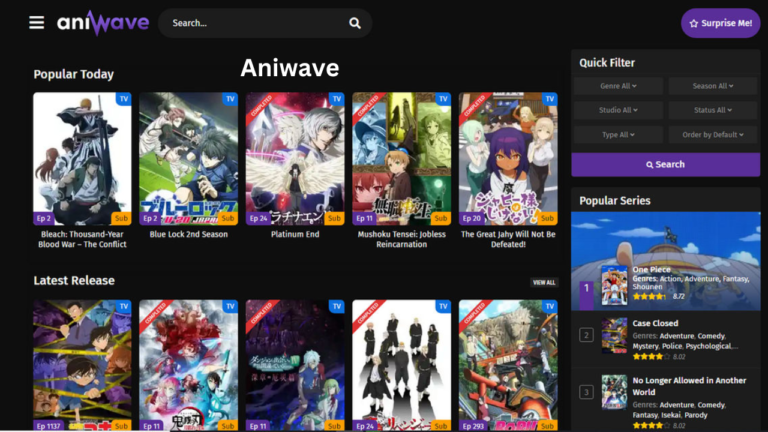
meta stock dividend
Introduction
Meta stock dividend., the tech giant behind social media platforms like Facebook, Instagram, and WhatsApp, has become a household name in the technology sector. Known for its innovative ventures into virtual reality and the metaverse, Meta has continuously delivered impressive growth in market value. Despite its success, Meta has yet to implement a dividend policy, leaving investors curious about whether the company will ever issue dividends, particularly stock dividends. This article explores the potential of Meta stock dividend and their implications for shareholders, offering a comprehensive overview for investors.
Understanding Stock Dividends
Stock dividends represent a distribution of additional shares to shareholders instead of cash payments. Unlike cash dividends, which provide immediate liquidity, stock dividends increase the number of shares an investor owns without altering the company’s market meta stock dividend capitalization. For example, if a company declares a 10% stock dividend, a shareholder holding 100 shares will receive 10 additional shares.
The appeal of stock dividends lies in their ability to reward investors without depleting the company’s cash reserves. They are often used by companies aiming to reinvest profits into growth rather than distributing cash payouts. Stock dividends can also signal a company’s confidence in its future earnings. However, they are not without drawbacks, as they may dilute share value temporarily, affecting market perception.
For shareholders, stock dividends can enhance long-term investment returns, especially when the company’s stock price appreciates over time. This makes them an attractive option for investors focused on growth and compounding gains.
Meta’s Financial Landscape
Meta has consistently demonstrated robust financial performance, driven primarily by its advertising revenues. In recent years, the company has expanded its focus to include groundbreaking technologies, such as virtual reality (VR) and augmented reality (AR), under its ambitious metaverse project. This diversification has solidified Meta’s position as a leader in the tech industry.
Despite its impressive earnings, Meta has not established a history of paying dividends. This aligns with the company’s growth-oriented strategy, meta stock dividend prioritizing reinvestment in innovative ventures over shareholder payouts. Meta’s financial reports highlight significant cash reserves, which could support the introduction of stock dividends if the company decides to pursue this route.
Investor sentiment regarding potential dividends remains mixed. While some shareholders prioritize immediate returns through dividends, others value the long-term growth prospects fueled by Meta’s investments in cutting-edge technologies. The decision to issue stock dividends would require Meta to balance these contrasting expectations, ensuring it does not compromise its growth trajectory.
The Potential for Meta Stock Dividend
Several factors could influence Meta to consider issuing stock dividends in the future. Firstly, the company’s strong cash reserves and profitability create a favorable environment for implementing a dividend policy. Stock dividends would allow Meta to reward shareholders without disrupting its financial stability or growth plans.
Secondly, shareholder demands may play a crucial role. As Meta’s stockholder base continues to grow, pressure to provide tangible returns could increase. Stock meta stock dividend dividends would offer a compromise, providing investors with additional shares while enabling Meta to reinvest in strategic projects.
The competitive landscape within the tech industry also cannot be ignored. Companies like Apple and Microsoft have successfully implemented dividend policies, enhancing their appeal to income-focused investors. Introducing stock dividends could help Meta attract a broader range of investors, boosting its market position.
However, risks and challenges persist. Issuing stock dividends could lead to share dilution, temporarily reducing individual share value. Additionally, Meta’s emphasis on growth and innovation may conflict with the perceived conservatism of dividend payouts. Any decision regarding stock dividends must carefully weigh these pros and cons.
Historical Context and Market Comparisons
The history of stock dividends within the tech industry offers valuable insights. Companies like Apple and Microsoft initially prioritized reinvestment meta stock dividend over dividends but later introduced payout policies as they matured. These decisions were well-received by investors, contributing to the companies’ long-term success.
Meta’s journey differs significantly. As a relatively younger company, Meta has remained laser-focused on growth, dedicating substantial resources to its metaverse vision. However, as Meta matures and stabilizes its growth trajectory, it could adopt similar dividend strategies, following in the footsteps of its predecessors.
By examining these market comparisons, Meta can develop a dividend policy tailored to its unique position. Lessons from competitors highlight the importance of meta stock dividend timing and financial readiness in introducing dividends, ensuring they align with corporate goals and shareholder expectations.
Investor Considerations
For investors, evaluating the potential for Meta stock dividend involves analyzing key financial metrics. Earnings per share (EPS), price-to-earnings (P/E) ratio, and return on equity (ROE) are critical indicators of Meta’s financial health and ability to sustain dividends.
Long-term investors may find stock dividends particularly appealing, as they offer opportunities for compounding wealth. However, short-term investors should be cautious, as the initial dilution of share value could impact short-term gains. Understanding the tax implications of stock dividends is also essential, as these vary by jurisdiction and can influence overall returns.
To prepare for potential dividends, investors should monitor Meta’s financial reports, strategic decisions, and shareholder communications. Staying informed will enable them to make well-informed investment choices.
Conclusion
The possibility of meta stock dividend represents a fascinating development for investors. While the company’s growth-oriented approach has historically precluded dividends, its strong financial position and evolving shareholder expectations create a compelling case for reconsideration. Balancing growth and shareholder returns will be key to Meta’s future success, ensuring it continues to thrive in the competitive tech landscape. For investors, understanding the dynamics of stock dividends and their implications will be crucial in navigating this potential opportunity.
FAQs on Meta Stock Dividend
What is a stock dividend, and how does it work?
A stock dividend is a distribution of additional shares to shareholders, increasing the number of shares owned without providing cash payouts. It rewards investors while preserving the company’s cash reserves.
Has Meta Platforms Inc. ever issued dividends before?
No, Meta has not historically issued dividends. The company has focused on reinvesting earnings into growth initiatives.
How would a Meta stock dividend impact its share price?
Stock dividends typically lead to share dilution, temporarily reducing individual share value. However, they can enhance long-term investment returns if the stock price appreciates over time.
Are stock dividends better than cash dividends for investors?
Stock dividends benefit investors seeking long-term growth, while cash dividends provide immediate income. The preference depends on individual investment goals.
When might Meta consider issuing stock dividends?
Meta could consider stock dividends as its growth stabilizes, particularly if shareholder demand increases or competitive pressures mount.
You May Also Read: https://techwhicher.com/proctor-silex






